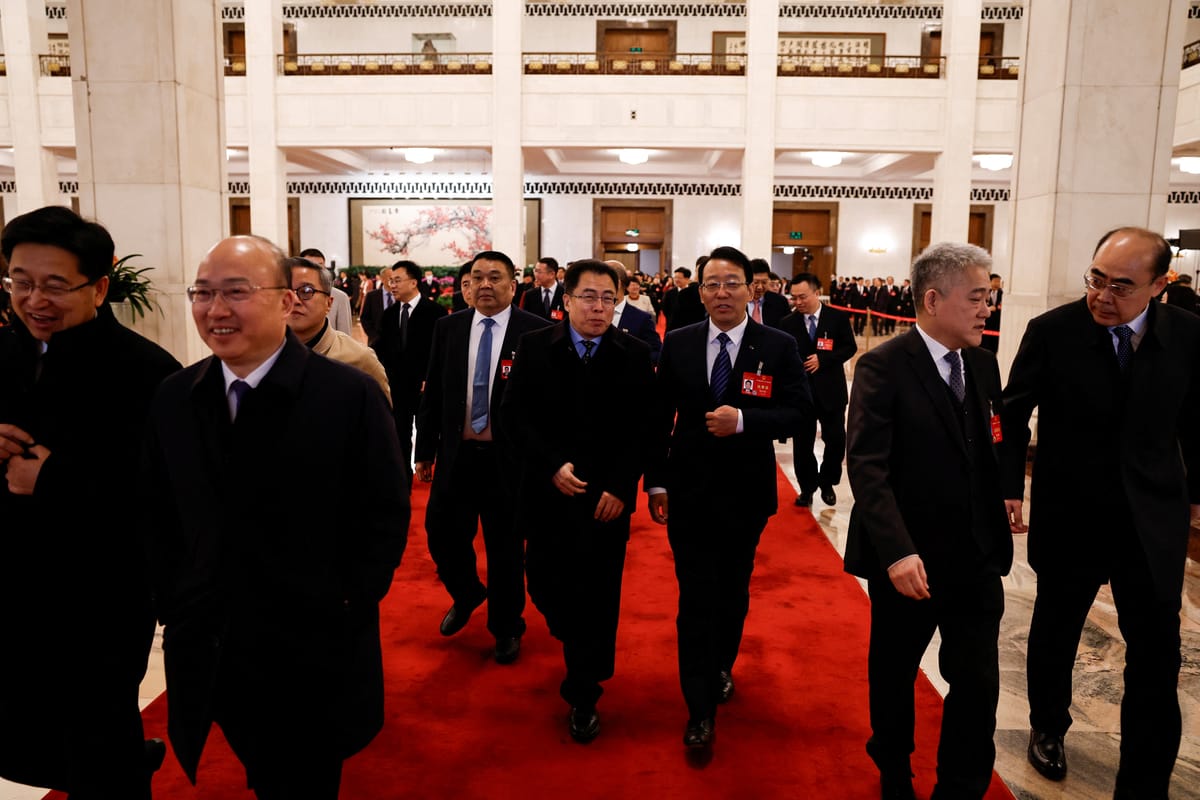China's Two Sessions 2024 – what's on the agenda and what to expect
China's "Two Sessions" are in full swing from March 5 to March 11 in Beijing.

A few minutes every morning is all you need.
Stay up to date on the world's Headlines and Human Stories. It's fun, it's factual, it's fluff-free.
The backstory: China, home to roughly 1.4 billion people, has been facing some tough economic challenges lately, especially in the wake of the COVID pandemic. Issues like a shaky property market, soaring debt, slow global growth and geopolitical tensions have been bubbling up. Among these, the country's struggling property sector is particularly an issue, as it contributes a big chunk to its GDP (estimated at 17-29%). Big players like Evergrande are drowning in debt and defaulting. On top of that, issues like high youth unemployment, dwindling exports (which means other countries aren't buying as much from China) and mounting local government debt have added to the economic headache. To tackle this downturn, China has been making some moves. For instance, the People's Bank of China recently slashed a key mortgage reference rate to ramp up support for the property market.
The development: China's "Two Sessions" are in full swing from March 5 to March 11 in Beijing, involving the National People's Congress (NPC) and the Chinese People's Political Consultative Conference (CPPCC). These meetings are where big policy decisions for the country happen. Last year, President Xi Jinping secured approval for a third term during these sessions, showing just how important this event is.
Over 2,900 parliamentarians from China, along with reps from Hong Kong, are in attendance for this year's "Two Sessions." These sessions are all about shaping policies and making necessary tweaks, with only the lawmakers having the power to vote. A key player to keep an eye on is Li Qiang, who took the premier seat last year and will deliver the government's "work report." Although, there won't be the customary meet-the-press session this year, according to a parliamentary spokesperson.
Li's report is expected to outline economic goals for 2024, including aiming for a 5% growth rate and a 3% GDP budget deficit. Also, there's the buzz surrounding Xi's efforts to leverage "new productive forces" like artificial intelligence (AI) to strengthen strategic industries. Another spotlight is on China's defense budget announcement, which has been outpacing GDP growth under Xi's leadership. Plus, different state bodies will reveal their plans for the next year, including what laws they want to focus on.
Key comments:
"Speeches by top policymakers will be key to watch, including interviews of key ministers, such as Minister of Industry and Information Technology, Minister of Science and Technology and Minister of Housing and Urban-Rural Development. These key ministers will discuss various policies in more detail," said Goldman Sachs analysts in a report.
"We expect the on-budget deficit – which excludes special bonds, policy bank bonds and local government financing vehicle (LGFV) debt – to be set at 3.0%-3.5% of GDP, narrowing from last year's 3.8% of GDP," said Louise Loo, lead economist at Oxford Economics in a report. "On balance, the additional fiscal impulse this year, assuming a bazooka-like fiscal package is not forthcoming, is unlikely to be particularly large."
"In promoting economic development, we did not resort to massive stimulus. We did not seek short-term growth while accumulating long-term risks," said Premier Li Qiang, according to a translation, at the conference in Davos. "Rather, we focused on strengthening the internal drivers."




Comments ()